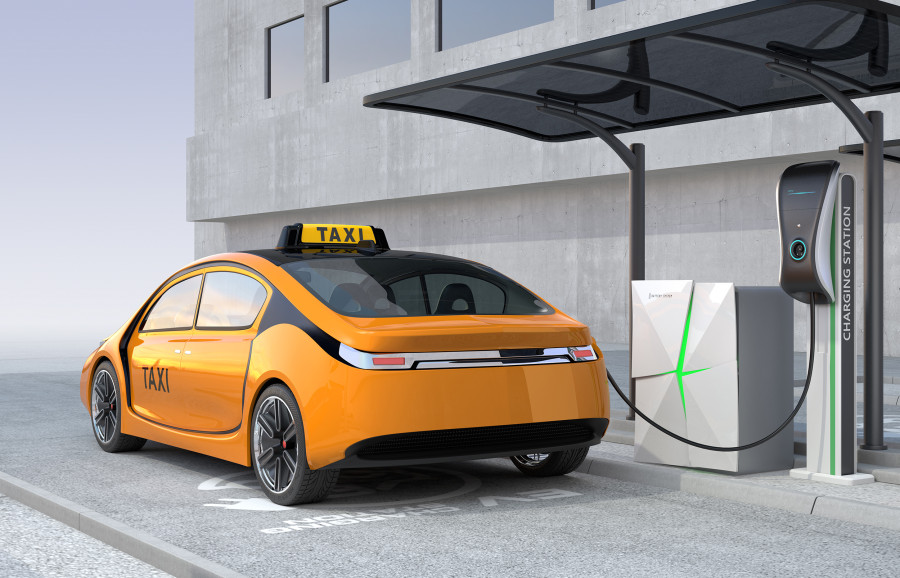National
Department of Transport opens up avenue for e-taxis
New guidelines will facilitate the operation of e-taxis, which should be sedans with a 40-kilowatt motor and a lithium-ion battery.
Anup Ojha
A new set of guidelines from the Department of Transport Management will facilitate the entrance and operation of electric taxis in Nepal, a move that is expected to allow transport entrepreneurs to bring in new taxis that are environmentally friendly.
The department approved the new rules on November 18 and they were made public on November 19.
“The new guidelines have been framed to promote e-taxis in Nepal,” said Prem Kumar Singh, a technical director at the department. “Everyone can operate taxis without any hurdles if they follow the guidelines.”
Based on the new guidelines, e-taxis should be sedans with lithium-ion batteries and a 40-kilowatt motor. The guidelines apply to only sedan cars with a lithium-ion battery. Other requirements include a three-box configuration with separate compartments for engine, passengers and cargo, an LED screen, air conditioner and heater, and an electric billing system.
Once such taxis come into operation, it will help reduce the number of cases of overcharging by taxi drivers, said department officials.
Taxi operators whose vehicles are more than 15 years old could purchase new electric taxis, said Gogan Bahadur Hamal, director-general of the department. The government has already announced a ban on vehicles that are more than 20 years old.
Environmentalists have welcomed the government's move, calling it a step toward ‘clean energy’, especially at a time when Kathmandu’s air is getting more toxic.
“It’s a good initiative, but I wonder how the government is going to implement it. The question is, can common people afford such taxis?” said Rajan Thapa, country coordinator of Clean Air Asia, an international non-governmental organisation that leads the global mission for better air quality and healthier, more livable cities in Asia. However, technical director Singh said that the government is working to make sustainable plans for the promotion of e-taxis so that they can be within everyone’s reach.
The department officials said that the Nepal Electricity Authority has already agreed to install electric charging stations at various places.
“There are already 10 charging stations in the Valley and many other private companies are working to install more,” said Singh.
According to the department, the government has stopped giving out new number plates for taxis since 2000 to avoid congestion on the roads. However, after the 2015 earthquake, it issued 1,500 permits for new taxi licences to expand livelihood for some families severely afflicted by the disaster.




 20.12°C Kathmandu
20.12°C Kathmandu.jpg)















